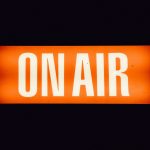Turning High School Radio Into Media Careers
My friend, colleague, and Radio Hall of Famer Downtown Joe Bryant was a co-host on The Bob Rivers Show for 25 years at KISW, KZOK, and KJR Seattle.
Joe is celebrating his 10th anniversary as the General Manager and Broadcast Media Instructor for KMIH 889, The Bridge, Mercer Island High School in Seattle.
Joe mentors high school students and inspires them to become passionate about radio. He also has important messages for our industry. We talked earlier this week.
Your high school radio station has won a slew of awards.
Yes, 2025 Best High School Radio Station in America by Intercollegiate Broadcasting System (New York) and 2024 Best High School Radio Station in the country by John Drury Radio Awards (Chicago).
For people under 18, our students have won the New York Times and NPR best podcast awards for the past several years.
Describe the programming on 889 The Bridge.
We have an entertaining and informative morning show called Breakfast on the Bridge.It’s an ensemble cast that includes news, sports, guests, music, and sometimes live music. The music is multigenerational, from Frank Sinatra to Bad Bunny.
The station has 24/7 programming. We have the RCS automation system, Zetta, and G-Selector to program our music.
Our station has a student music director and some who handle production, and we program many live sporting events. We broadcast traditional sports like football and basketball, and other youth sports like lacrosse, volleyball, and soccer. Hey, ESPN even has cornhole on!
What students have gone on to pursue careers in radio and other media?
One of our former students is now co-hosting the morning show on NPR’s KUOW here in Seattle. A student is now a writer for The Atlantic. No, she wasn’t the one on the infamous group text!
Another student just got a summer job at Fox Sports LA. I have a student attending Dartmouth. His focus is on business rather than media, but he uses the skills he learned in my program to produce the Big Green Economics Podcast, which is featured on the front page of the university’s website.
Are your classes designed solely for kids wanting to go into radio?
No, we have special needs students with issues like Autism. They learn to hear their voice, build confidence, become better communicators, and find their place in school. We give students a platform to express their voices.
Tell us about the curriculum.
We start by teaching the history of radio through today to give students context and perspective. I explain how radio goes from your mouth to the mic, the transmitter, the tower, the radio, and Mars. We also discuss the difference between AM and FM radio.
Classes are offered in the art of the interview. One of the student features is “Career Spotlight,” where they interview from a field they’re interested in. I will play clips of interviews from The Bob Rivers Show. Some are model interviews, and others that tanked to illustrate what doesn’t work.
Do young people listen to radio for music or the personalities?
They listen more for personalities. Our shows with the most downloads are the ones with the strongest personalities. Two female students launched a popular fashion podcast, and now they’re going on a local TV station to critique the TV host’s fashion!
Four Asian American students generated the most downloads with the “Rice and Shine” podcast. The girls provide a unique perspective on growing up as Asian American teens. They discuss topics ranging from light things such as KPOP to more serious discussions like the increased hate AAPI kids are facing in some communities. They have been profiled in magazines and won many national awards.
What are the problems facing high school radio stations?
Many of the teachers are English teachers who have never worked in radio. It’s a sin that many high school stations have closed because of it. If you’re a retired or semi-retired air personality, offer your services at high school and college radio departments and stations.
Joe, I majored in Radio, TV, and Film at Memphis State and was on air at the campus radio station. Most of the teachers had never been in radio, and we learned the most from class guests like local Memphis radio programmers and personalities like Scott Shannon.
If you work in radio, attend career days to speak, share your knowledge, engage young people, and show passion for radio and podcasting. Volunteer at a local school’s media program or Journalism class. Mentor upcoming talent with a free critique of their show.
If you teach a radio class, give students the freedom to explore. Make it a learning lab, give them a little rope, let them make mistakes to learn, and help them find their voice. People learn best by doing.
Since radio has lost its training ground to voice tracking overnights, weekends, etc., how can we develop young talent in other ways?
Companies could offer more programs like Hubbard Radio’s summer camp to teach young people about radio. They could also get back to intern programs. Many personalities started as morning show interns. Now, anybody with a smartphone can be a broadcaster.
What advice do you have for the radio industry?
Be more relevant and super-serve your community, like we do with The Bridge. Marry the city and be part of it. Spotlight local artists’ music. Our station has a local music category that we play once an hour.
One of the many things I learned from Bob Rivers is not to be satisfied with good. Work on it until it’s excellent. Respect your audience’s intelligence and take some risks musically—surprise and delight listeners.
Photo by Mikael Kristenson on Unsplash



